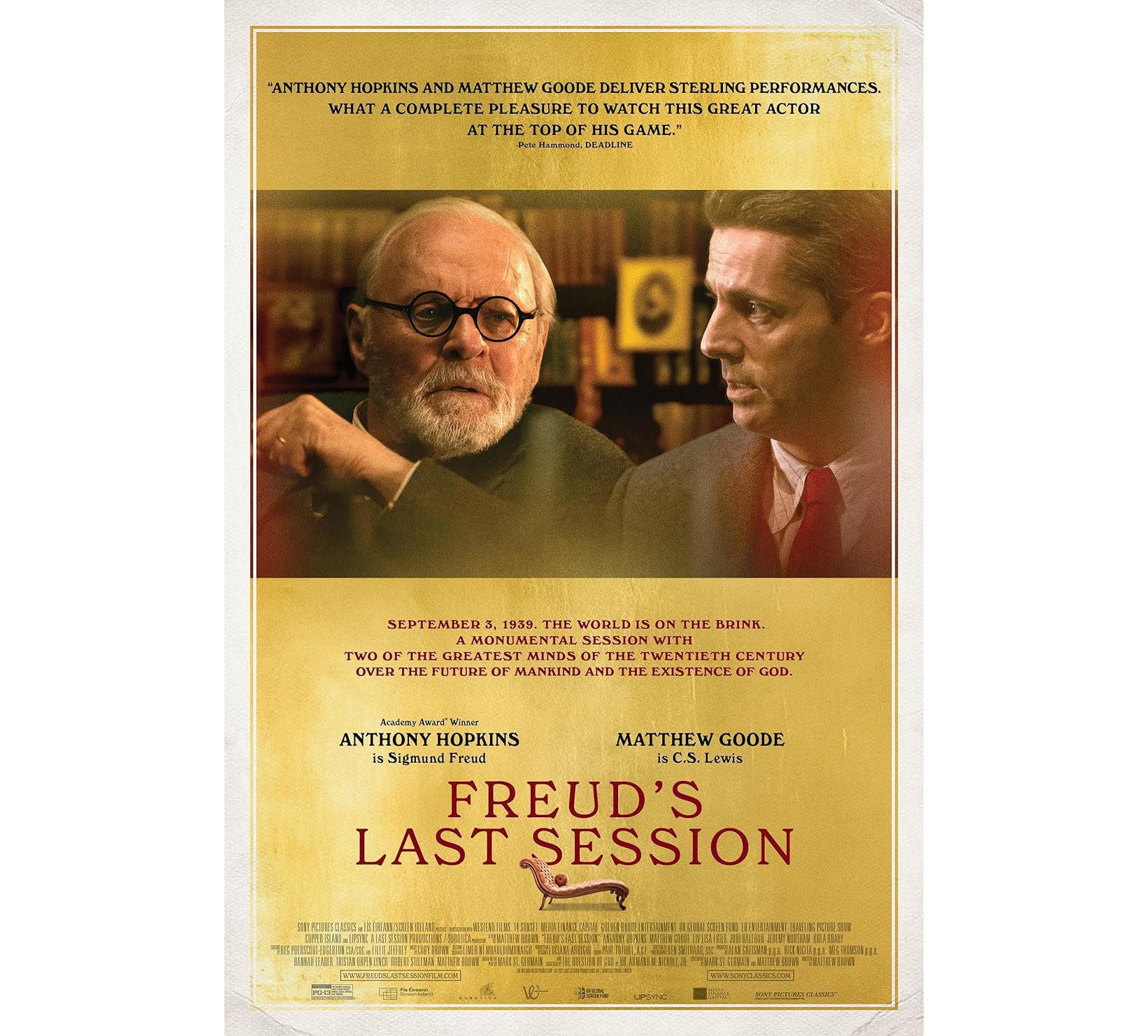For people who are interested in C.S. Lewis (and Sigmund Freud), late last December the movie Freud’s Last Session was released. First written as a play by Mark St. Germain in 2009, in response to Armand M. Nicholi’s book The Question of God: C.S. Lewis and Sigmund Freud Debate God, Love, Sex, and the Meaning of Life, this latest film rendition has had mixed reviews. We thought it might be interesting to host a conversation between two Lewis scholars. What you’ll hear is a mix of opinions about:
- how the film accurately represented Lewis, and his Christian worldview – or didn’t;
- casting choices;
- the philosophical and theological debates between Lewis and Freud;
- the impact of the film on viewers, especially in terms of its potential to either misrepresent or illuminate aspects of Lewis’s and Freud’s ideas, and
- the effectiveness of the film in conveying themes such as joy, suffering, and the search for truth, set against the backdrop of Lewis’s and Freud’s divergent worldviews.
Here are the bios for our guests
Stephen Dunning received his PhD from the University of Cambridge, which he attended as a Commonwealth Scholar. For many years, he was an instructor at Douglas College in New Westminster, B.C. In 2007, he joined the English Faculty of Trinity Western University from which he retired in 2017. He is the author of The Crisis and the Quest: A Kierkegaardian Reading of Charles Williams, and of articles on modern British and Canadian literature. He founded the Inklings Institute of Canada in 2013 with his colleague, Monika Hilder. Along with his continued participation in Institute events, he keeps busy by writing stories for his grandchildren and their friends, and by singing in a choral group.
Laura Van Dyke, Ph.D., teaches in the Department of English and Creative Writing and in the Foundations program at Trinity Western University in Langley, B.C. Her doctoral work focused on twentieth-century and contemporary British literature, with a focus on what alchemical metaphysics has to offer literary representations of materiality. She is a co-editor of The Inklings and Culture (2020), the first essay collection to treat all seven Inklings-related authors, and is an executive advisor of the Inklings Institute of Canada, housed at Trinity Western University, which hosts regular evening lectures and discussions about the life and writings of C.S. Lewis, J.R.R. Tolkien, Charles Williams, Owen Barfield, George MacDonald, G.K. Chesterton and Dorothy L. Sayers.
Names mentioned in this conversation:
Anna Freud, Charles Williams, Cormac McCarthy, C.S. Lewis, Diana Pavlac Glyer, Jacques Derrida, J.R.R. Tolkien, Mark St. Germain, Owen Barfield, Philip Pullman, Saint Augustine, Sigmund Freud, Virginia Woolf, and Warnie Lewis.
Books mentioned:
A Grief Observed (C.S. Lewis)
Mere Christianity (C.S. Lewis)
Paradise Lost (John Milton)
Pilgrim’s Regress (C.S. Lewis)
Problem of Pain (C.S. Lewis)
The Allegory of Love (C.S. Lewis)
The Chronicles of Narnia (C.S. Lewis)
The Pilgrim’s Regress (C.S. Lewis)
The Question of God: C.S. Lewis and Sigmund Freud Debate God, Love, Sex, and the Meaning of Life (Armand Nicolai)
Movie/Television titles mentioned:
A Discovery of Witches
Hannah Arndt
Shadowlands
The Sunset Limited
The Two Popes

